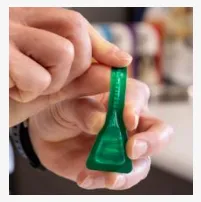- Afrikaans
- Albanian
- Amharic
- Arabic
- Armenian
- Azerbaijani
- Basque
- Belarusian
- Bengali
- Bosnian
- Bulgarian
- Catalan
- Cebuano
- Corsican
- Croatian
- Czech
- Danish
- Dutch
- English
- Esperanto
- Estonian
- Finnish
- French
- Frisian
- Galician
- Georgian
- German
- Greek
- Gujarati
- Haitian Creole
- hausa
- hawaiian
- Hebrew
- Hindi
- Miao
- Hungarian
- Icelandic
- igbo
- Indonesian
- irish
- Italian
- Japanese
- Javanese
- Kannada
- kazakh
- Khmer
- Rwandese
- Korean
- Kurdish
- Kyrgyz
- Lao
- Latin
- Latvian
- Lithuanian
- Luxembourgish
- Macedonian
- Malgashi
- Malay
- Malayalam
- Maltese
- Maori
- Marathi
- Mongolian
- Myanmar
- Nepali
- Norwegian
- Norwegian
- Occitan
- Pashto
- Persian
- Polish
- Portuguese
- Punjabi
- Romanian
- Russian
- Samoan
- Scottish Gaelic
- Serbian
- Sesotho
- Shona
- Sindhi
- Sinhala
- Slovak
- Slovenian
- Somali
- Spanish
- Sundanese
- Swahili
- Swedish
- Tagalog
- Tajik
- Tamil
- Tatar
- Telugu
- Thai
- Turkish
- Turkmen
- Ukrainian
- Urdu
- Uighur
- Uzbek
- Vietnamese
- Welsh
- Bantu
- Yiddish
- Yoruba
- Zulu
Dhj . 10, 2024 00:49 Back to list
Effective Solutions for Eliminating Lungworm in Dogs and Ensuring Their Health
Understanding Lungworm in Dogs Identification and Treatment
Lungworm, particularly the species *Angiostrongylus vasorum*, is a parasitic infection that can affect dogs. This parasite predominantly resides in the pulmonary arteries and lungs of infected animals. The condition can lead to severe health issues, including respiratory problems, bleeding disorders, and, in some cases, even death. It's crucial for dog owners to be aware of the risks associated with lungworm and the methods for treatment and prevention.
Symptoms of Lungworm in Dogs
Identifying lungworm in dogs can be challenging, as symptoms may mimic other respiratory conditions. Common signs include
- Coughing - Difficulty breathing - Lethargy - Loss of appetite - Weight loss - Vomiting - Bleeding, particularly from the nose or in the stool
If a dog exhibits any of these symptoms, it is essential for the owner to consult a veterinarian promptly for diagnosis and treatment.
Transmission and Risk Factors
Dogs typically contract lungworm by ingesting larvae found in the environment, particularly in contaminated water, soil, or through eating infected snails or slugs. The risk is particularly high in wet or muddy conditions, making certain geographical areas more prone to lungworm outbreaks. There are also certain breeds that may be more susceptible due to their lifestyle and habits, such as those that have a tendency to eat snails.
Diagnosis
A veterinarian will usually diagnose lungworm through a combination of physical examinations, a review of the dog’s history, and specific tests. Fecal examinations can reveal the presence of lungworm larvae, while blood tests can indicate any associated health issues. In some cases, imaging tests such as X-rays or ultrasounds may be used to assess any damage to the lungs or surrounding tissues.
Treatment Options
Prompt treatment of lungworm is critical to prevent serious health complications
. The most common medications used to treat lungworm in dogs are anthelmintics, which are designed to kill the adult worms and larvae. Here are some common treatmentswhat kills lungworm in dogs

1. Fenbendazole This is one of the most frequently used medications. It's effective in clearing lungworms from a dog's system and is often administered over several days.
2. Moxidectin This medication is typically given as a spot-on treatment. It not only targets lungworm but also protects against certain other parasites.
3. Ivermectin While commonly used for various parasitic infections, this should be used with caution and is often avoided in certain breeds (like Collies) due to potential adverse effects.
After the treatment, dogs may require follow-up visits to ensure that the infection has been fully cleared and to monitor for any potential side effects from the medications.
Prevention
Preventing lungworm infection is a key concern for dog owners, especially in high-risk areas. Here are several preventive measures
- Regular Deworming Consult with a veterinarian to set up a deworming schedule that targets lungworm, particularly if your dog is at higher risk.
- Control the Environment Limit your dog's access to areas where snails and slugs are prevalent. Keeping your yard clean and free of these potential hosts can reduce the chance of infection.
- Avoiding Snails and Slugs Train your dog not to eat these creatures. Supervised outdoor play can help control what your dog interacts with.
- Prompt Treatment If you suspect that your dog has come into contact with contaminated environments or has shown symptoms, seek veterinary care immediately.
Conclusion
Lungworm is a serious condition that can severely affect your dog's health. By understanding the symptoms, transmission methods, treatment options, and preventive measures, dog owners can play a significant role in keeping their pets healthy. Always stay informed and consult your veterinarian regularly to ensure your dog remains protected against this potentially fatal parasite.
-
Guide to Oxytetracycline Injection
NewsMar.27,2025
-
Guide to Colistin Sulphate
NewsMar.27,2025
-
Gentamicin Sulfate: Uses, Price, And Key Information
NewsMar.27,2025
-
Enrofloxacin Injection: Uses, Price, And Supplier Information
NewsMar.27,2025
-
Dexamethasone Sodium Phosphate Injection: Uses, Price, And Key Information
NewsMar.27,2025
-
Albendazole Tablet: Uses, Dosage, Cost, And Key Information
NewsMar.27,2025













